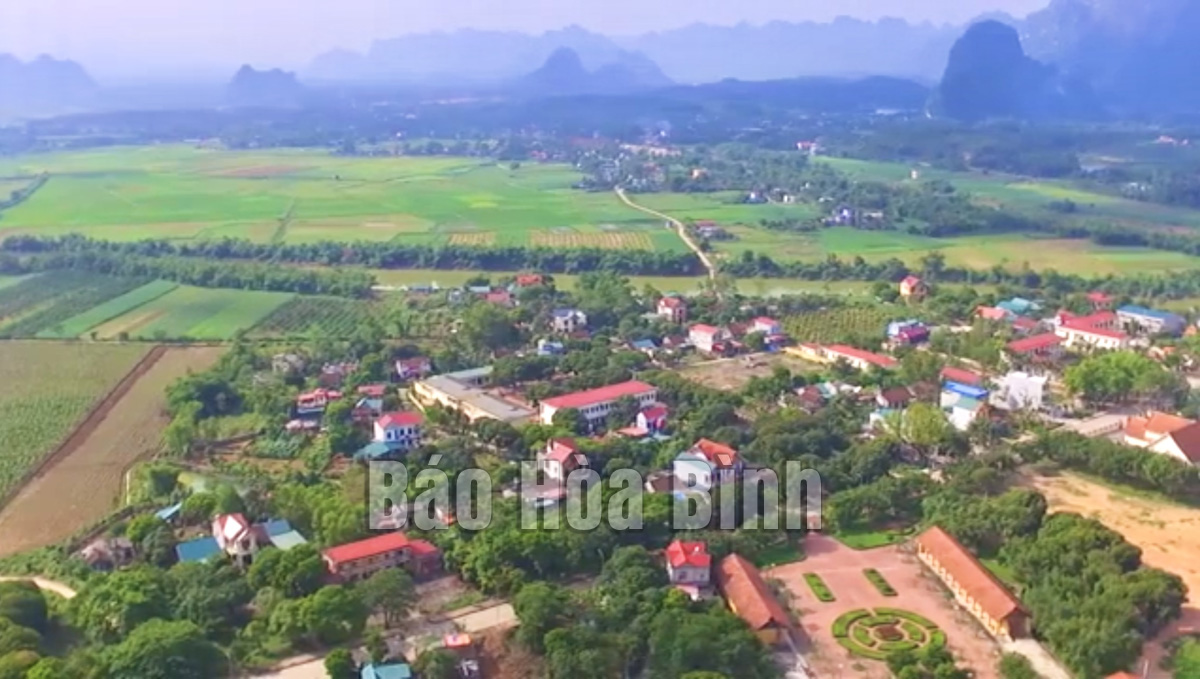
(HBO) – Visiting Phu Nghia in Lac Thuy district this August, we have seen the place getting more vibrant with colours of flags, banners, and slogans.
At the relic of a money printing factory, which was
accredited as a national relic site by the Ministry of Culture, Sports and
Tourism in 2007.
During the years of the resistance war against
the French colonists, after receiving the general uprising order on the night
of August 22, 1945, a large number of soldiers and people in Co Nghia commune
(now Phu Nghia commune) and the people of Lac Thuy district stood up to regain
power. The commune's revolutionary administration was quickly established,
leading the people to fight and protect their villages.
In March 1946, the Government decided to move a
money printing factory of the revolution to Co Nghia commune. It was placed at
the plantation of the patriotic bourgeois Do Dinh Thien, and was completely
protected during the years of resistance.
At the end of 2010, the State awarded the army
and people of the commune the title of "Hero of the People's Armed Forces"
in the resistance war against the French colonialists.
As peace returned, Phu Nghia has been given a
facelift with high-storey houses, and vast green tea fields and fruit orchards.
In the first half of 2022, the community’s total
production value was estimated at 308.2 billion VND (13.15 million USD),
fulfilling 57.4% of the yearly plan and up 3.96% year on year. The local
cultural, social, educational, medical, security-defence activities have been
constantly improved, while its social security, hunger eradication and poverty
alleviation have been given more attention.
Duong Xuan Hung, Chairman of the Phu Nghia
People's Committee, said that by the end of 2021, its per capita income
surpassed 52 million VND, and poverty rate decreased by over 2%. The commune
maintained and improved 19 criteria for advanced new-style rural areas./.
Hoa Binh province is undergoing a dynamic transformation amid Vietnam’s national digital transition. Building on Poliburo’s Resolution No. 57-NQ/TW on breakthroughs in science, technology, innovation, and national digital transformation, the province has rolled out a wide range of practical action plans. A standout initiative is the "Digital Literacy for All” movement, an effort to ensure that no one is left behind in the digital era.
Hoa Binh province is undergoing a dynamic transformation in the wake of the national digital transformation movement. Building on Resolution No. 57-NQ/TW of the Politburo on breakthroughs in science, technology, innovation, and national digital transformation, the province has implemented a wide range of practical action plans. A standout initiative is the "Digital Literacy for All” movement ambitious effort to ensure that no one is left behind in the digital age.
With a spirit of unity and proactive problem-solving, the Party Committee, the government and the people of Dong Lai Commune (Tan Lac District) have made great strides in implementing the resolutions of the 24th Party Congress of the commune for the 2020 - 2025 term. Focusing on leadership and practical actions, the commune has brought the Party’s resolutions into daily life, creating strong impacts and pushing the local development forward.
Amid the nationwide push for digital transformation, young people in Hoa Binh Province are stepping up as dynamic pioneers, applying technology to enhance Youth Union operations and expand the reach of youth-led initiatives. Through creativity and adaptability, Youth Union organizations at all levels have introduced a series of practical solutions, contributing to modern governance and community development.
In recent years, An Nghia commune, located in Lac Son district, has stepped up administrative reform, focusing on improving the quality and efficiency of its single-window service unit for receiving and processing administrative procedures. These improvements have helped create favourable conditions for local residents and organisations to handle administrative procedures, contributing to the commune’s broader socio-economic development.
The Prime Minister-approved master plan to develop the multi-use value of forests ecosystems through 2030, with a vision to 2050, aims to improve the management and sustainable use of forest resources, create jobs, increase incomes, and improve the living standards of ethnic minorities, people in mountainous and remote areas, forest workers and those living near forests.



